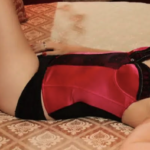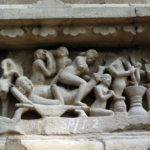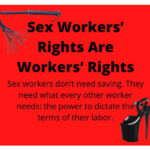Criminal Offences Related to Paying for Sexual Services in New South Wales

Although sex work has largely been decriminalised in New South Wales, criminal offences still apply to the purchase of sexual services in certain circumstances.
Here is what you need to know as a client of sex workers.
General Rules Regarding Sex Work
Sex work has largely been decriminalised in our state since 1995.
Sex work (sometimes called “prostitution”) is defined under section 3 of the Summary Offences Act 1988 (NSW) as encompassing acts of prostitution between persons of different sexes or of the same sex that include either sexual intercourse or masturbation for payment.
Under the Crimes Act 1900(NSW) sexual activity encompasses vaginal, anal and oral sexual intercourse, as well as masturbation and the use of sex toys.
As sex work is decriminalised, anyone over the age of consent in NSW (16 years old) may legally purchase sexual services. However there are strict restrictions on where sex work can be solicited and with, with strict criminal penalties for non-compliance.
The following are offences in New South Wales in regard to sex work:
- Live on the earnings of prostitution of another person, unless that person owns or works for sex services — maximum penalty of 12 months imprisonment;
- Uses coercive conduct or undue influence to force a person to do sex work — maximum penalty of 12 months imprisonment; and
- Uses coercive conduct or undue influence to force a person to give payment for their sex work — maximum penalty of 12 months imprisonment.
Public Solicitation Offences
It is an offence under section 19A of the Summary Offences Act 1988 (NSW) to solicit another person for “prostitution” as a prospective client:
- In a road or road related area near or within view of a dwelling, school, church or hospital; or
- In a school, church or hospital.
This offence carries a maximum penalty of $660 or imprisonment for 3 months.
A seperate offence also exists under this section for soliciting another person for the purpose of “prostitution” in a manner that harasses or distresses that other person.
This offence carries a maximum penalty of $880 or imprisonment for 3 months.
Private Solicitation Offences
It is also an offence under section 16 of the Summary Offences Act 1988 (NSW) to solicit another person for “prostitution” on any premises held out as being available:
- For the provision of massage, sauna baths, steam baths or facilities for physical exercise; or
- For the taking of photographs; or
- As a photographic studio; or
- For service of a like nature to above.
This offence carries a maximum penalty of $550 or imprisonment for 3 months.
Procuring For Prostitution Offences
An offence under section 91A of the Crimes Act 1900 (NSW) applies when a person ‘procures, entices or leads away’ any person who is not currently engaged in sex work for the purposes of “prostitution”. This offence includes acts of procuring, enticing or leading away outside as well as inside NSW.
This offence carries a maximum penalty of seven years imprisonment.
It is also an offence under section 91B of the Act to procure, entice, or lead away’any person for the purposes of “prostitution” either:
- By means of any fraud, violence, threat, or abuse of authority; or
- By the use of any drug or intoxicating liquor.
This offence carries a maximum penalty of 10 years imprisonment.
The Offence Of Child Prostitution
Sex work can only be provided by people over the age of 18 in Australia. An offence exists under section 91D of the Crimes Act 1900 (NSW) for any person who:
- By any means, causes or induces a child to participate in an act of child prostitution; or
- Participates as a client with a child in an act of child prostitution,
This offence carries a maximum penalty of 14 years imprisonment (if the child under under 14 years of age) and 10 years imprisonment if the child is between 14 and 17 years old.
The consent of a child is not a defence to under charge related to child prostitution.
The Crimes Act contains several offences relating to child prostitution. These are:
- Inducing a child to engage in sex work or participating as a client in prostitution with a child (Section 91D). This offence carries a maximum penalty of imprisonment for 10 years, or 14 years for a child under 14 years old.
- Receiving money knowing it is derived from child prostitution (Section 91E). This offence carries a maximum penalty of imprisonment for 10 years, or if the child is aged under 14, for 14 years.
- Exercising lawful control over premises where a child participates in sex work (Section 91F). A person is guilty if they knew about the act of prostitution.
Consent and Sex Work
Engaging in any sexual activity with another person without their consent could constitute an offence . This standard applies to everyone in NSW, including sex workers.
Section 61HI of the Crimes Act 1900 (NSW) sets out that a person consents to sexual activity if they “freely and voluntarily agree” to the activity.
A sex worker must freely and voluntarily consent to the provision of sexual services with a client at all time. Consent can also be revoked at any time. Payment in exchange for sexual services does not limit the right of sex workers to revoke consent.
A person who does not offer physical or verbal resistance to a sexual activity is not, by reason only of that fact, to be taken to consent to the sexual activity.
Section 61HJ of the Act states that a person does not consent to a sexual activity if they:
- Do not say or do anything to communicate consent; or
- Lack capacity to consent to the sexual activity; or
- Are so affected by alcohol or another drug as to be incapable of consenting to the sexual activity, or
- Are unconscious or asleep; or
- Participates in the sexual activity because of force, fear of force or fear of serious harm of any kind to the person, another person, an animal or property; or
- Participates in the sexual activity because of coercion, blackmail or intimidation; or
- Participates in the sexual activity because the person or another person is unlawfully detained; or
- Participates in the sexual activity because the person is overborne by the abuse of a relationship of authority, trust or dependence; or
- Participates in the sexual activity because the person is mistaken about the nature of the sexual activity, or the purpose of the sexual activity.
- Participates in the sexual activity with another person because the person is mistaken about the identity of the other person, or that the person is married to the other person; or
- Participates in the sexual activity because of a fraudulent inducement.
Engaging in sexual activity with a sex worker without their consent could give rise to charges of sexual assault, sexual touching or unlawful sexual acts.
Unique dynamics could give rise to a lack of consent associated with sex work.
For example, in the ACT Supreme Court case of R v Livas, the offender (who pled guilty) pretended to pay a sex worker $850 in what turned out to be an envelope containing folded up paper. The sex work discovered this fraud only after having sexual intercourse with the offender.
In sentencing the offender to a period of imprisonment for 25 months, Justice Penfold noted that “no one should doubt that fraudulently achieving sexual intercourse by this kind of activity constitutes rape”.
The NSW consent laws changed on 1 June 2022, updating the Crimes Legislation Amendment (Sexual Consent Reforms) Act 2021 to:
- clarify consent in the Crimes Act 1900, confirming that ‘consent’ is free and voluntary among both parties,
- clarify that consent involves mutual communication,
- Enforce laws to confirm that consent can be withdrawn,
- Ensure effective prosecutions of sexual offences,
- Address inconsistencies about consent in trials, and
- improve victim experience and juror understanding of sexual offending and reporting.
The NSW Government supported all recommendations the NSW Law Reform Commission (LRC) made in Report 148.
The NSW Government’s reform supports that if an accused person believes they have consent, but did not attain it before or during the act, it will be invalid.
Brothel Closure Order
The Brothel Legislation Amendment Act was passed in 2007. This act gives local councils in NSW the power to issue a Brothel Closure Order for unauthorised premises or in the event of a complaint. A Brothel Closure Order can only be used to shut down a premises with more than one sex worker.
Local councils may issue a Brothel Closure Order if one or more complaints are made about a brothel by a person who works or uses facilities in the area.
A Brothel Closure Order can only be opposed by lodging an appeal. Failure to comply with a Brothel Closure Order is an offence.
Receive all of our articles weekly
Related Articles
RELATED LEGISLATION
- Section 19A Summary Offences Act 1988 | Soliciting Prostitutes by Clients
- Section 16 Summary Offences Act 1988 | Prostitution or Soliciting in Massage Parlours
- Section 91A Crimes Act 1900 | Procuring for Prostitution
- Section 91B Crimes Act 1900 | Procuring Person by Drugs
- Section 91D Crimes Act 1900 | Promoting or Engaging in Child Prostitution
- Section 61HI Crimes Act 1900 | Consent Generally
- Section 61HJ Crimes Act 1900 | Circumstances in Which There is No Consent






